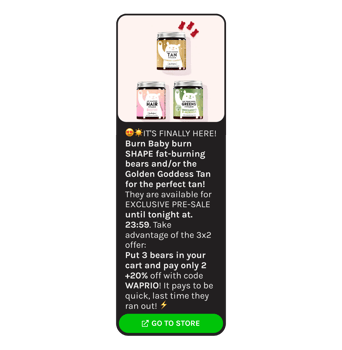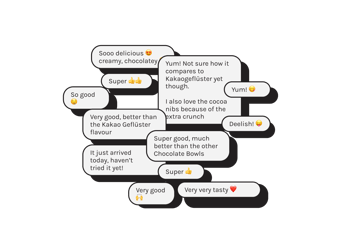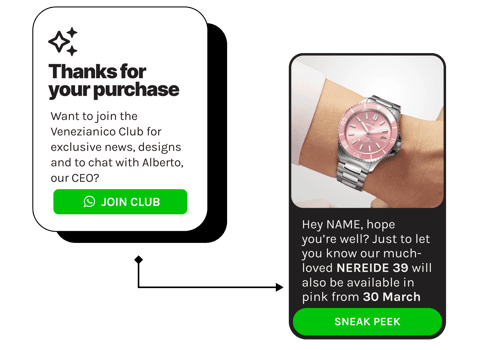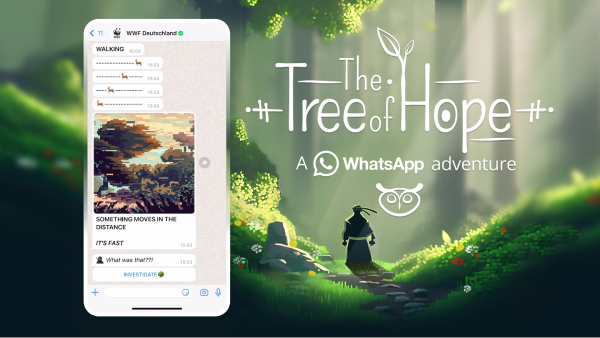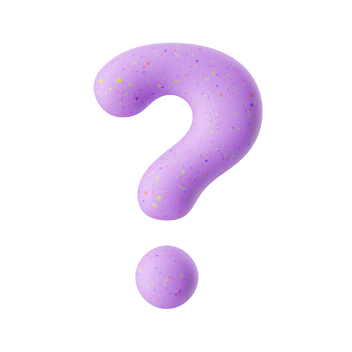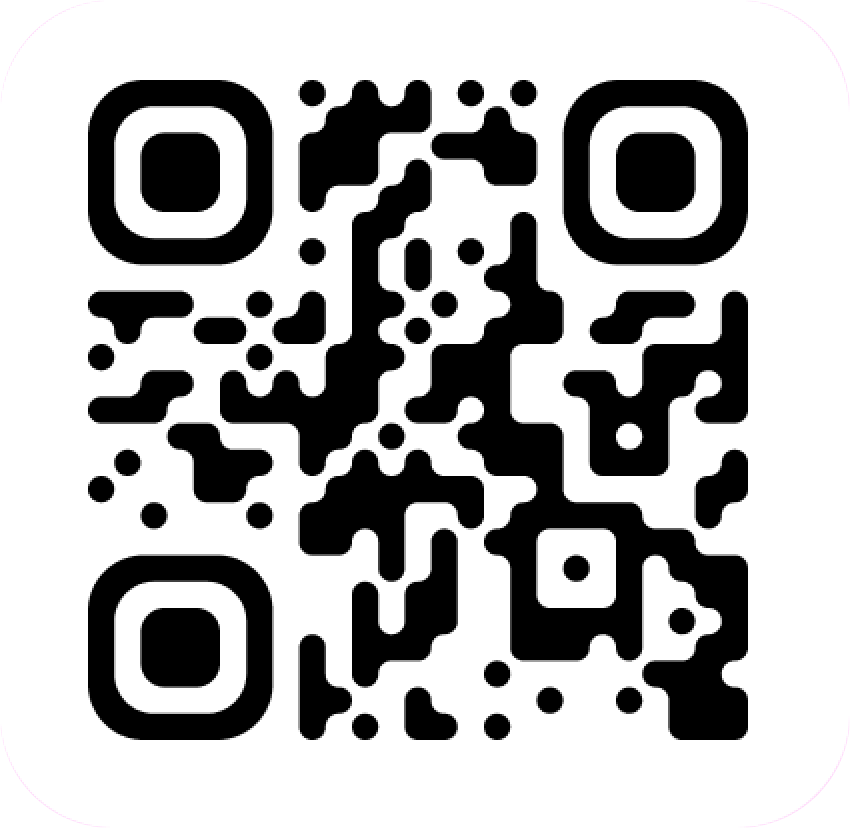How to use WhatsApp Business for eCommerce [+ 12 use cases]
Updated: September 27, 2024
By Maxine Hess
Writer | WhatsApp marketer | Creative
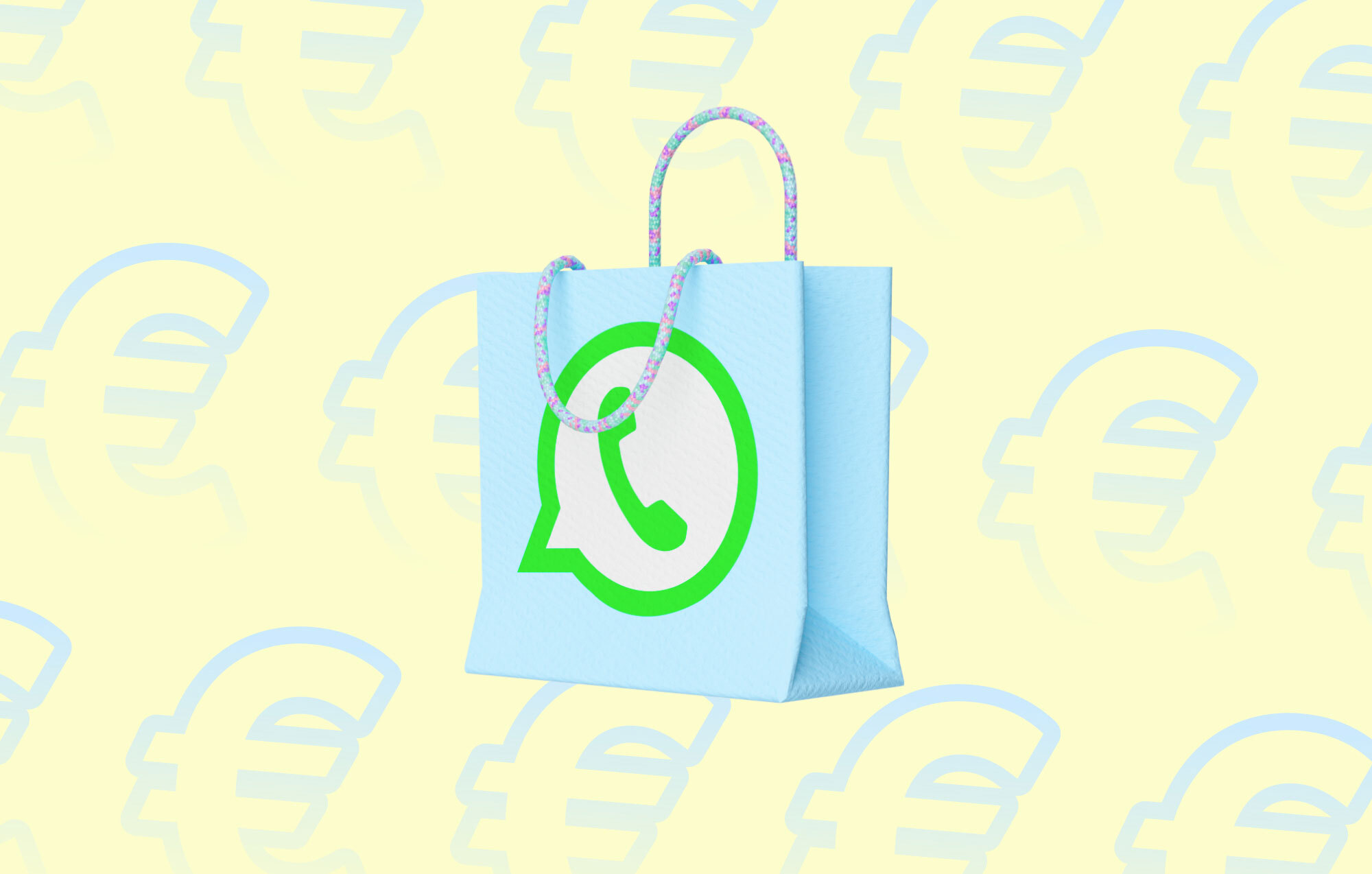
WhatsApp is a powerful way for eCommerce brands to boost their marketing mix. But what type of eCommerce businesses use it? And how do they make it a success?
In our key markets of Germany and Italy, more and more customer relationship management (CRM) teams are adding WhatsApp to their marketing mix.
With numbers like 85% open rates and average return on ad spend (ROAS) of 16.6X,* we believe Whatsapp promises great potential for eCommerce brands when combined with email and others as part of an omnichannel marketing strategy.
What is WhatsApp eCommerce?
WhatsApp eCommerce is the selling of goods and services on WhatsApp. To do this, businesses use WhatsApp Business.
Definitions of terms:
- eCommerce is "electronic" commerce, or selling goods and services over the internet through digital devices (rather than physical stores)
- WhatsApp Business is a platform where businesses can communicate and do business with customers over WhatsApp. Small businesses generally use the free WhatsApp Business app. Medium to large businesses and enterprises usually use the WhatsApp Business API to communicate with 100,000s of customers at a time, automate conversations, gather analytics and more. To use the API, businesses need software, which, unless they build it themselves, means partnering with a WhatsApp Business Solution Provider – either a Solution Partner (like charles), Tech Partner or Tech Provider.
WhatsApp Business and eCommerce are the perfect match
Many of our customers are eCommerce companies.
WhatsApp, as a direct, personal, always-on channel is perfectly placed to build the long-term relationships eCommerce brands desire to build.
At the same time, customers want more personalized experiences.
Buying online isn't as personal as it is in store. Who do you ask about sizes? Where's the shop assistant that knows you? Who's going to run over with a new shirt that would be perfect with your skin tone?
"65% of those surveyed stated that personalized experiences are vital to their purchase intent"
Source: Yahoo
WhatsApp is the perfect opportunity to bring a personal touch to digital shopping. With a WhatsApp channel, eCommerce brands can enjoy a direct line to customers.
With the WhatsApp Business API, they have rich segmentation and targeting capabilities to make messages and product recommendations highly personal.
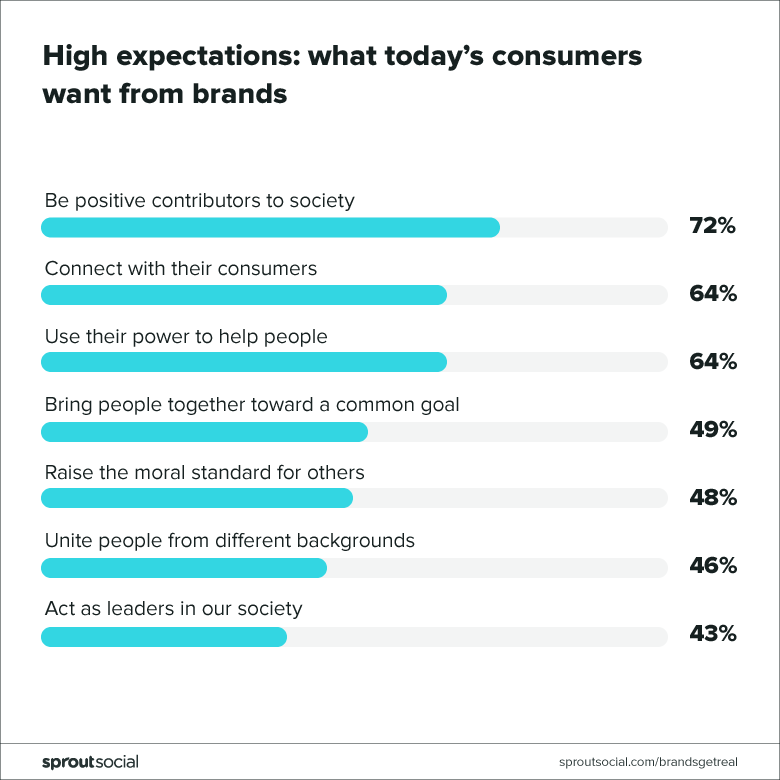
64% of people surveyed said they expect brands to connect with consumers. Source: Sprout Social
WhatsApp for eCommerce is already proven
WhatsApp is a relatively new channel for eCommerce brands in Europe.
But in other markets, like Brazil, India and Indonesia, WhatsApp is already a key revenue driver for eCommerce brands. Consumers in these countries enjoy the direct interaction they get with brands in WhatsApp.
The WhatsApp Business functionality is more developed here too, with consumers able to order their weekly shop, pay and search for businesses directly in the app.
What kind of eCommerce brands use WhatsApp?
The eCommerce brands that we see enjoy the most success with WhatsApp have a few key things in common:
- Sell products (not services)
- Are business-to-consumer (B2C), although we have some B2B use cases too
- Have a turnover of at least €1 million
- Have at least 15k+ web visitors per month
What are some examples of eCommerce brands using WhatsApp?
We're seeing many fashion, food and beauty brands doing great things on WhatsApp. We also have health supplements, furniture and many more industries.
Here are some that use WhatsApp through the charles platform: Jack Wolfskin (outdoor clothing) | Dermalogica (skincare) | Oatsome (health food) | Bears with Benefits (beauty supplements) | Kapten & Son (fashion).
Why is WhatsApp good for eCommerce brands?
Until fairly recently, eCommerce has mostly happened on websites. Customers buy from online stores with digital storefronts, product description pages (PDPs) and checkout pages.
In the last few years, eCommerce has spread to social media apps like Facebook and Instagram – even with the possibility to checkout without leaving the apps. Now, eCommerce is arriving in WhatsApp. Here are some reasons why.
✅ Benefits of WhatsApp Business for eCommerce brands
|
Drive revenue |
Send engaging WhatsApp marketing campaigns, shorten sales cycles by answering customer questions, send discounts to close deals, create targeted audiences, send relevant products and campaigns to segmented audiences. |
| Increase CLV | When brands have opt-ins on WhatsApp and email, they have more touchpoints with customers and can more easily grow brand loyalty. (SNOCKS increased CLV by 20% when they have email and WhatsApp contacts from a customer.) |
| Improve CX | Many people have WhatsApp on their phones and enjoy the ease of chatting with a business on WhatsApp – getting quick answers to questions and keeping all conversations in one, easy-to-find thread. |
| Retarget more easily | Through WhatsApp, you can collect information, get double opt-ins and automatically add tags, so when you contact a customer again, you can send highly relevant products or content. |
| Save time and effort | WhatsApp marketing may take time and effort to manage than you think – in particular with WhatsApp integrations and automation. |
| Reach a younger audience | Younger generations expect to reach brands on platforms they already use, like Facebook and Instagram. WhatsApp offers access to a wide age range of users, including younger people. |
"The next generation of consumers will expect a highly personalized shopping experience – where products find them instead of the other way around"
why does WhatsApp suit enterprise eCommerce brands?
Business of every size can reap the rewards of WhatsApp marketing. Especially enterprises:
- They have large customer bases ready and waiting, who are looking for more personal ways to stay connected with the brands they love
- WhatsApp is popular globally, so it can be rolled out for international brands, without needing to localize apps or websites
- They have the teams in place – CRM, marketing, sales and customer services team – and with WhatsApp integrations and software these can be combined
For enterprises, rolling WhatsApp out companywide at first can be complex. That's why our enterprise clients tend to start with a single use case, like a product finder or friend referrals. Or they zoom in to one locality, focusing on 1 country or portfolio brand to begin with, then scaling rapidly once the channel is tested.
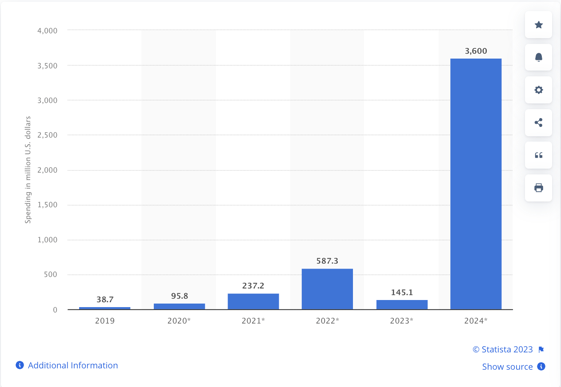 Forecast of medium and large business spending on WhatsApp Business worldwide from 2019 to 2024
Forecast of medium and large business spending on WhatsApp Business worldwide from 2019 to 2024
But the potential is there and enterprises are waking up to this at a fast rate.
Spend on WhatsApp Business by medium to large businesses is due to hit €3.6 billion in 2024. This is an incredible jump when you consider the spend was €38.7 million in 2019.
Enterprise use of WhatsApp Business APIs forecast to increase 5,400% to 2024
See our article on WhatsApp for enterprise to learn more about how WhatsApp works for larger companies' specific needs.
Why is the WhatsApp API a good option for eCommerce brands?
The WhatsApp Business Platform (API) is suitable for medium to large eCommerce brands because it offers excellent functionality, automation possibilities and scalability. The free WhatsApp Business app is aimed at small businesses.
Functionality you may find in software using the API compared to the app:
- Advanced automation: create automated conversational flows and chatbots (like in charles Journeys)
- Shop integration: integrate Shopify and other online shops, into the API to see order history, build carts and more
- CRM integrations: connect your other marketing and CRM platforms, like Klaviyo and Emarsys for smooth omnichannel experiences
- Abandoned carts: automatically remind people about an abandoned cart to boost sales at this critical moment
- Multiple agents: use the API across multiple teams and customer agents
- Unlimited recipients: send messages to as many people as you like
The business benefits of the WhatsApp API over the app include:
- More scalable: unlimited agents and recipients so your WhatsApp channel grows as you grow
- More sales opportunities: reactivate, remind about abandoned carts, send discounts, build tailored carts, segment audiences finely, create automated flows that work out of hours
- Better retention: through automated flows that can automatically reengage customers, like email CRM flows
"40% of marketers say that mobile-friendly website design and mobile messaging through SMS, Facebook Messenger, WhatsApp, and other platforms is the most effective trend they’re currently leveraging"
Hubspot State of Marketing Report
FYI: to use the API, you pay Meta (WhatsApp) per conversation, plus possible platform fees to a WhatsApp Solution Partner.
12 WhatsApp eCommerce use cases
Now you know what WhatsApp eCommerce is, which eCommerce businesses use WhatsApp and why the WhatsApp Business API is a better option than the app, let's dive deeper.
How can you actually use WhatsApp for your eCommerce business? What business problems does it solve? How can you sell a WhatsApp marketing channel to your company?
Here are 12 use cases of WhatsApp for eCommerce businesses (proven by our eCommerce clients):
1. Product launches
Instead of time-intensive email campaigns, you can send a simple WhatsApp message to announce your product launch – and expect 85% open rates so more people see your message.
Our customer, Bears with Benefits enjoys great success with WhatsApp product launches, earning €100,000 in 3 months in Italy
2. Exclusive pre-access
It's easier to sell a product when you have reviews to back it up. Get early reviews and excitement around your product launches by offering exclusive pre-access on WhatsApp only.
"So many people replied. It was super exciting to see such quick, enthusiastic responses."
Saskia Dörr, CRM Manager, Oatsome
This worked well for Oatsome, who gathered 50 reviews of its new product Choco Crush – which it then used in social media to strengthen the public launch. See the story here.
3. Automated product finders
Customers love to be treated as unique individuals. Lead them to the perfect product for them by letting them tell you what they like and don't like:
- Create an automated WhatsApp flow that asks your customers 5-10 questions about their preferences – like favorite color, size, skin type, favorite music...
- Customers are led along the flow by tapping answers, receiving new messages, and are ultimately shown their perfect product
- You then send a final product suggestion that automatically has a link to that product or even a cart with that product in it
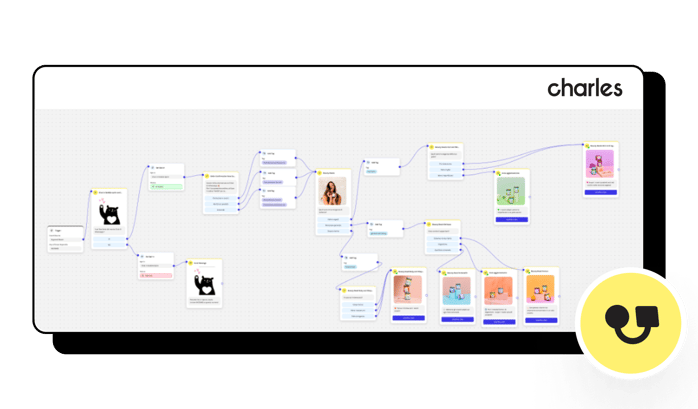
Bears with Benefits cleverly suggests products during its Italian opt-in flow using Journeys
How to lead people to the product finder? Send your WhatsApp subscribers a "marketing" message, add popups on your website, use your opt-in flow like Bears with Benefits, put QR codes on in-store flyers, add the QR code on product description pages.
The bonus? All responses can be automatically stored as tags so you can target them with more relevant WhatsApp promotions and content in future.
5. Customer-led product development
What products do your customers want to see? Ask them in WhatsApp.
Our client, Italian "affordable luxury" watchmaker, Venezianico, does this successfully. It regularly sends WhatsApp messages from its CEO to its very engaged customer base of watch fans. He asks what they'd like to see in the next watch design. Venezianico then incorporates their feedback into the new design.
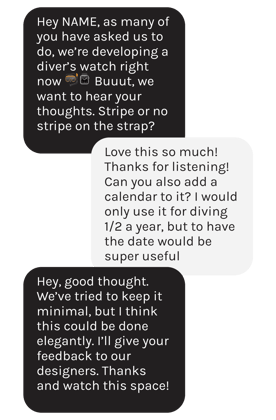
Venezianico uses WhatsApp to ask its customers what it wants to see in its new products
The bonus? WhatsApp customers get early access to the new product, building loyalty even further.
6. Post-purchase retention
Add a message on the thank you page after a purchase to encourage people to join your WhatsApp channel.
It's common for brands to use thank you pages to stay connected with customers on WhatsApp, like Venezianico
7. Order updates
This is the perfect, non-invasive use case for WhatsApp eCommerce. After a purchase, customers want to know when their package will arrive. They appreciate getting WhatsApp messages to notify them.
Offer this possibility on the thank you page.
.png?width=500&height=355&name=bearswbenefits3%20(2).png)
Bears with Benefits post-purchase page
The bonus? Not only do you help your customers, you get more opt-ins to your WhatsApp channel and stay connected with more customers.
8. Seasonal campaigns (like Black Friday)
WhatsApp is particularly powerful for seasonal campaigns and shopping events like Black Friday, the holiday season and any relevant day or event.
.jpeg?width=2330&height=1210&name=Black%20Friday%20WhatsApp%20message%20collage%20(1).jpeg) Some WhatsApp messages brands sent on Black Friday. Get our BFCM Playbook here.
Some WhatsApp messages brands sent on Black Friday. Get our BFCM Playbook here.
9. Birthday greetings and other occasions
Make a customer feel special by sending them a Happy Birthday message on WhatsApp – where it will sit nicely among the other birthday messages from friends and family. Give them a little gift too – a discount or free product.
Or send it on the first anniversary of them becoming a customer, their pet's birthday or other occasion unique to them, that you have stored in your customer profile – whether on your shop or CRM system (if integrated).
 WhatsApp birthday greetings are a way to reactivate customer relationships
WhatsApp birthday greetings are a way to reactivate customer relationships
10. Competitions and quizzes
In WhatsApp, there's no limit to your creativity. And the more creative you get, the more engaged your customers will be. Simple, interactive competitions and quizzes work well.
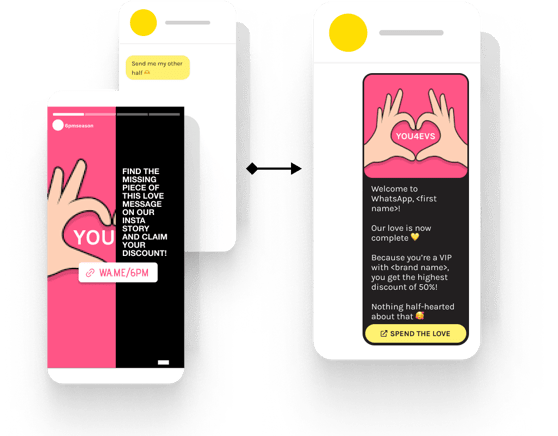
A WhatsApp competition idea for Valentine's Day – combining social media with WhatsApp
11. Interactive games
Games are a great way of engaging your audience and staying top of mind. Here's one we made for WWF Germany. Even though it took 15 minutes to play, over 30% of people played the entire game.
A fun WhatsApp game that raised awareness about protected natural areas in Germany that we made for WWF
The bonus? You get people into your WhatsApp channel through the game. At the end of the WWF game, we asked if they wanted to hear from WWF again. Over 50% said yes, and were automatically assigned an opt-in tag in the charles platform – so they could be contacted again legally in future.
12. Abandoned cart reminders
If a customer leaves products in their cart on your website, you can check if they have a WhatsApp opt-in too (for example, through a Klaviyo integration).
Then you can send them a reminder to go ahead and purchase, or lead them to another product – or even send an extra discount to close the deal.
How to set up your WhatsApp eCommerce strategy with charles
charles is here to help European consumer eCommerce brands launch a WhatsApp Business channel and help drive revenue.
We provide 2 key components:
- An easy-to-use WhatsApp marketing platform: software so you can automate, chat with customers, add tags, view analytics and more
- Excellent support: personal, hands-on or tickets support, offering best practice advice with strong WhatsApp expertise
Here are some ways we set up consumer eCommerce brands for success in WhatsApp:
Automate common customer journeys in WhatsApp
We'll help you set up automated flows in Journeys – like product finders, out-of-office replies, answers to FAQs and games – that can run in the background, earning you money while you focus on other things.
Integrate with your existing platforms
We'll integrate our platform with your existing tools, like Emarsys, Klaviyo and Zendesk. This way, you can keep using all your data and carry on as before, but with the added power of WhatsApp.
Plan your WhatsApp campaigns
We'll help you develop an annual strategy that incorporates all the key events, and your own ones, so you don't miss an opportunity to make sales. Our product enables campaign scheduling too, so you can set everything up in advance.
Learn how to rock WhatsApp marketing in our OMR masterclass (in German, turn on English subtitles in YouTube)
WhatsApp: the new superpower for your eCommerce business
WhatsApp can be a powerful tool for eCommerce businesses.
To get the full power of WhatsApp Business, medium to large eCommerce businesses should use the WhatsApp API. To do this, they often partner with a WhatsApp Solution Partner like charles.
There are many use cases for eCommerce brands in WhatsApp, 12 of which are listed above, like product finders, abandoned cart reminders and interactive games.
We recommend starting with WhatsApp sooner rather than later. Your competitors may already be on WhatsApp, or planning to add it to their marketing mix. And the momentum is growing, as more people wake up to the benefits of connecting with customers in this personal and direct channel.
Get a free demo with charles and ask us anything you'd still like to know about WhatsApp for eCommerce businesses.
*Return on ad spend (ROAS) = revenue per recipient (RPR)/marketing conversation fee, Meta Germany = €1.88/€0.1131 = 16.6X (excludes charles platform costs).
RPR used is €1.88 median customer RPR from Dec 23 to May 24 across all charles' customers, across different verticals and with different AOVs, with enabled revenue tracking.
This is purely indicative information – legal disclaimer: This analysis only provides an initial and purely indicative information based on historical platform data from our customers and using standard valuation methodologies. A reliable or definitive sales or revenue forecast cannot be derived from the result, either currently or in the future. Further, neither has charles independently verified the data and assumptions used in these analyses, nor made an undertaking to update the underlying data or assumptions meaning that such information may become outdated which will clearly impact the forecast result.
Jump to

